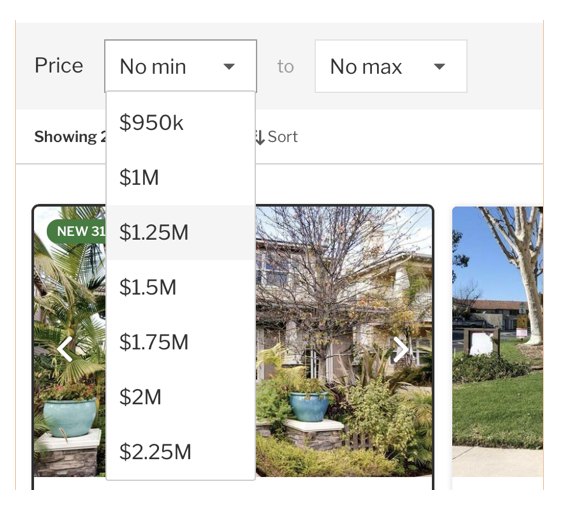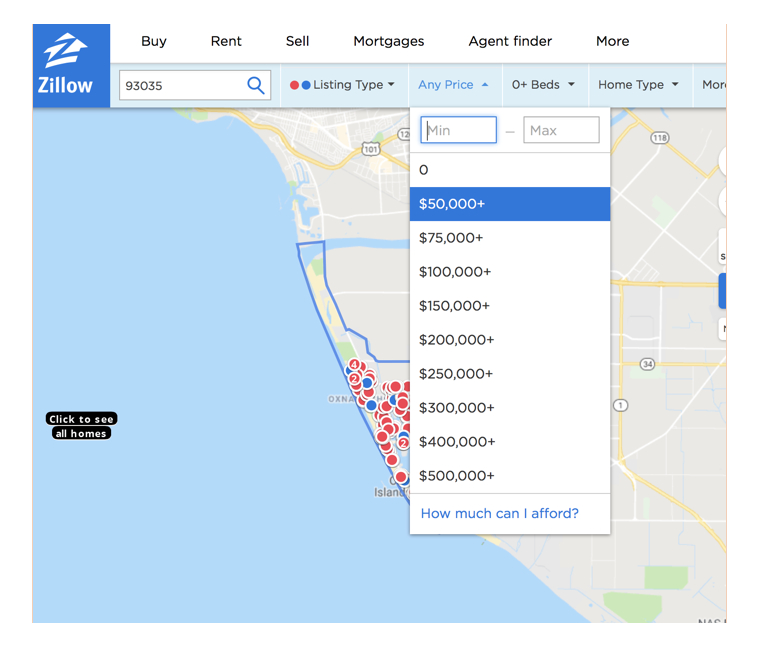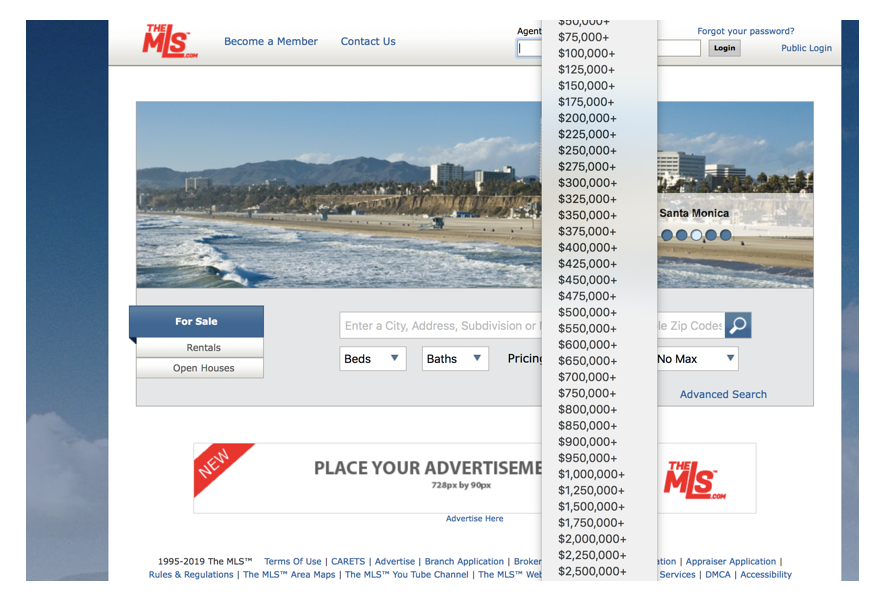Mar 13, 2019 | Inman
If 50 percent of buyers found their home online, shouldn't we do our best to make sure we're part of their search?
Most online search portals restrict price searches to fixed numbers. This brings up an important question: Should agents list a home at $499,900 or $500,000? Should we price the home at $999,900 or $1 million?
Troy Palmquist is an indie broker in California with more than a decade of experience. His regular column, which covers a range of helpful tips for agents and op-eds on industry happenings, publishes Thursdays on Inman.
Most online search portals restrict price searches to fixed numbers. This brings up an important question: Should agents list a home at $499,900 or $500,000? Should we price the home at $999,900 or $1 million? Ask any five agents, and you will get five different answers.
There is an art to pricing property, and everyone has their own opinion. But do certain numbers matter more? Take for example $999,900 or $999,000 — if you price the home at $1 million then you are expanding the number of views that the home will receive.
The reason being that at $1 million you are coming up in the search results of buyers that are looking up to $1 million and those starting their search at $1 million. If the home was priced at the $999,900, then the buyers starting their search at $1 million would not see it. This is a missed opportunity on both the buy and sell side, but does the client even know it?
Realtor.com allows a buyer to type in the price but what are they inputting? $999,900 or up to a $1 million or starting at $1 million? This is definitely worth thinking about.

Zillow gives actual price ranges and manual input, but still rounds out the numbers.
This theory isn’t for every price point. In fact, a home for $530,000 wouldn’t be and shouldn’t be raised to $550,000 to hit the next buyer price range.

TheMLS.com for the Los Angeles area public site has preset values — even more than the other sites.

Let’s take into account that as the agent, I am showcasing my property across three of the most trafficked real estate sites in the industry, so I better get it right.
You better believe powerhouse sites like Zillow are. They have access to a wealth of concrete data. It makes me wonder — what do the in-house Zillow players who are buying and selling properties themselves price their properties at?
What is their list price strategy? It would be helpful if these companies would include these metrics in their annual reports and even more beneficial if they could break it down by major metro area.
Until then, I only have my own theories to guide me. As far as I can tell, I am missing an opportunity to capture buyers who qualify for a certain amount by listing a property with a number that ends in “99” or “90.”
For example, I was going to list a property for $799,000 but changed it to $800,000 as a means to capture more qualified buyers in that range.
Why you ask? Because technology has changed the way people search for homes, and these search engines and their automated price caps often dictate the way clients view their search results.
This, of course, all hinges on the user and how they input (or are allowed to input) their search. These search patterns are a critical piece of the puzzle, but we, as agents, hardly have the evidence or facts to back up our pricing theory. Right now, we are going off the cuff.
I would go as far as to challenge these sites to not only study and track these findings internally but also share them with agents so we can use that data to develop the best price strategies for our specified area.
If 50 percent, according to the National Association of Realtors, of buyers found their home online, shouldn’t we do our best to make sure we’re part of their search?
In summary, the question I raise is this: If a certain percentage of homebuyers search for their home on the internet, how can agents make sure we have full exposure to the buyers who might be starting and ending their home search at the same price?
How does the buyer and the lender look at the value? Definitely not with numbers ending in “888,” “990” or “900.”
Do you have a methodology, theory or list price strategy to share? If so, please tell us your thoughts in the comments section below.
Troy Palmquist is the founder and broker of The Address in Southern California. Follow him on Facebook, or connect with him on LinkedIn.



